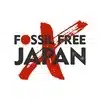
Joint Statement:
Japanese NGOs praise collective engagement by institutional investors calling for investees to withdraw from Vung Ang 2 coal-fired power plant in Vietnam:
Public and private sector players in Japan and Korea should take heed
Japan Center for a Sustainable Environment and Society (JACSES)
Kiko Network
Friends of the Earth Japan
350.org Japan
Mekong Watch
Media have reported that several major institutional investors — including Nordea, Amundi, AP7, Allianz, and more — are urging Japanese and Korean public financial institutions and major companies associated with or involved in the Vung Ang 2 coal-fired power plant project in central Vietnam to withdraw from the project[1]. As Japanese environmental NGOs, we laud these collective engagement efforts by institutional investors. Vung Ang 2 is one of the last coal-fired power plant projects the Japanese public and private sectors are attempting to build overseas. As divestments from coal-related projects are accelerating around the world, the international community is increasingly critical of the continued pro-coal stance of Japan’s public and private sectors.
Nordea Asset Management, the largest asset manager in the Nordic region, has sent a joint letter signed by institutional investors to public financial institutions and companies involved in (or believed to be associated with) the Vung Ang 2[2]. The letter points out that this project is not consistent with the Paris Agreement and the UN Sustainable Development Goals (SDGs), and raises concerns about the economic viability of coal power in Vietnam, where the cost of new renewable energy is lower than newly built coal power plants. The letter also refers to an analysis by the Environmental Law Alliance Worldwide (ELAW) finding that the project’s environmental impact assessment (EIA) used weaker emission standards than those applied internationally and that it failed to consider alternatives to coal power, concluding that it did not meet internationally accepted standards for evaluating potential environmental impacts. The letter also states that companies must actively tackle climate-related issues, and that Vung Ang 2 has high climate-related, financial, and reputational risks, and strongly urges the recipients “to make a public commitment to end all forms of involvement in new coal projects worldwide.”
The recipients of the letter were not announced, but are believed to be known investors in Vung Ang 2, including Mitsubishi Corporation, Chugoku Electric Power Co., and Korea Electric Power Corporation, as well as Nippon Export and Investment Insurance (NEXI), which is considering providing insurance, plus banks known to be considering financing the project, such as the Japan Bank for International Cooperation (JBIC), Mitsubishi UFJ Financial Group, Sumitomo Mitsui Financial Group, Mizuho Financial Group, Sumitomo Mitsui Trust Holdings, and the Export-Import Bank of Korea (KEXIM), as well as Doosan Heavy Industries & Construction and Samsung C&T Corporation, which are affiliated with EPC.
Climate change is an urgent matter. Companies that do not take serious climate actions are already finding that investors are excluding them from consideration as investment candidates, and that trend is likely to escalate. Japanese companies are also being called upon to make a quick exit from fossil fuels. JBIC, NEXI, private banks, and insurance companies are needed not only to make the coal exit themselves, but to support Japanese companies exiting from the coal-fired power sector.
In his first policy address to the Japanese parliament, Prime Minister Yoshihide Suga on October 26 declared the national target of net zero greenhouse gas emissions by 2050, saying “Responding to climate change is no longer a constraint on economic growth. We need to change our thinking to the view that taking assertive measures against climate change will lead to changes in industrial structure and the economy that will bring about great growth.” But what he stated contradicts the government policies that support the construction of new coal-fired power plants overseas and lock those countries into long-term carbon emissions.
Vung Ang 2 is still at the planning stage. Public financial institutions and companies in Japan and Korea should heed not only the voices of opposition inside and outside their own countries[3], but also listen sincerely to the demands of institutional investors, and withdraw from the project.
***
Footnotes:
- Footnote 1:
- Examples of media coverage:
Sustainable Japan, 22-Oct-2020, (Japan, Korea) 18 institutional investors worth 380 trillion yen call on 12 companies to withdraw from Vung Ang 2 coal power project in Vietnam (in Japanese)
https://sustainablejapan.jp/2020/10/22/vietnam-vung-ang-2-investors/55017 - Financial Times, 20-Oct-2020, Funds worth $3tn attack South Korea and Japan groups over coal project, https://www.ft.com/content/d3e40756-51e0-4347-8248-df56e1868045
- Reuters, 21-Oct-2020, Investors heap pressure on Vietnam’s Vung Ang 2 coal power project,
https://www.reuters.com/article/us-vietnam-coal-idUSKBN2761FC - Korea Times, 21-Oct-2020, Samsung C&T, KEPCO urged to pull out of coal power plant project in Vietnam, http://www.koreatimes.co.kr/www/nation/2020/10/371_297947.html
- Examples of media coverage:
- Footnote 2:
- Nordea Asset Management, Oct-2020, Enquiry regarding the Vung Ang 2 coal-fired power plant project in Vietnam,
https://www.nordea.lu/documents/static-links/Nordea_CEO_letter_on_climate_coal_phase_out_Vung_Ang_2.pdf - Companies listed in the Nordea letter include the following: AkademikerPension, Amundi, AP7, Brunel Pension Partnership, CCLA, Church Commissioners for England, Church of Finland, Church of Sweden, Danica Pension, Folksam, LD Pensions, Nordea Life & Pension, PenSam, Sampension, Storebrand Asset Management, Varma, and Velliv. There are other signatories to letters as well, with signatories depending on the recipients (companies associated with the Vung Ang 2 project). For example, an IJGlobal article lists Allianz and PensionDanmark, which are additional to those listed above (22-Oct-2020, Investors launch ESG offensive against Vietnamese coal plant)
https://ijglobal.com/articles/150815/investors-launch-esg-offensive-against-vietnamese-coal-plant
- Nordea Asset Management, Oct-2020, Enquiry regarding the Vung Ang 2 coal-fired power plant project in Vietnam,
- Footnote 3: No Coal, Go Green! Stop Japanese Coal Finance! https://sekitan.jp/jbic/en/
***
Contact:
FoE Japan
1-21-9 Komone, Itabashi-ku, Tokyo 173-0037, Japan
TEL: +81-3-6909-5983, FAX: +81: 3-6909-5986
Email:info@foejapan.org
***
Related article: No Coal Go Green! Project Video “Tell Japan to Stop Financing Overseas Coal Power!”

